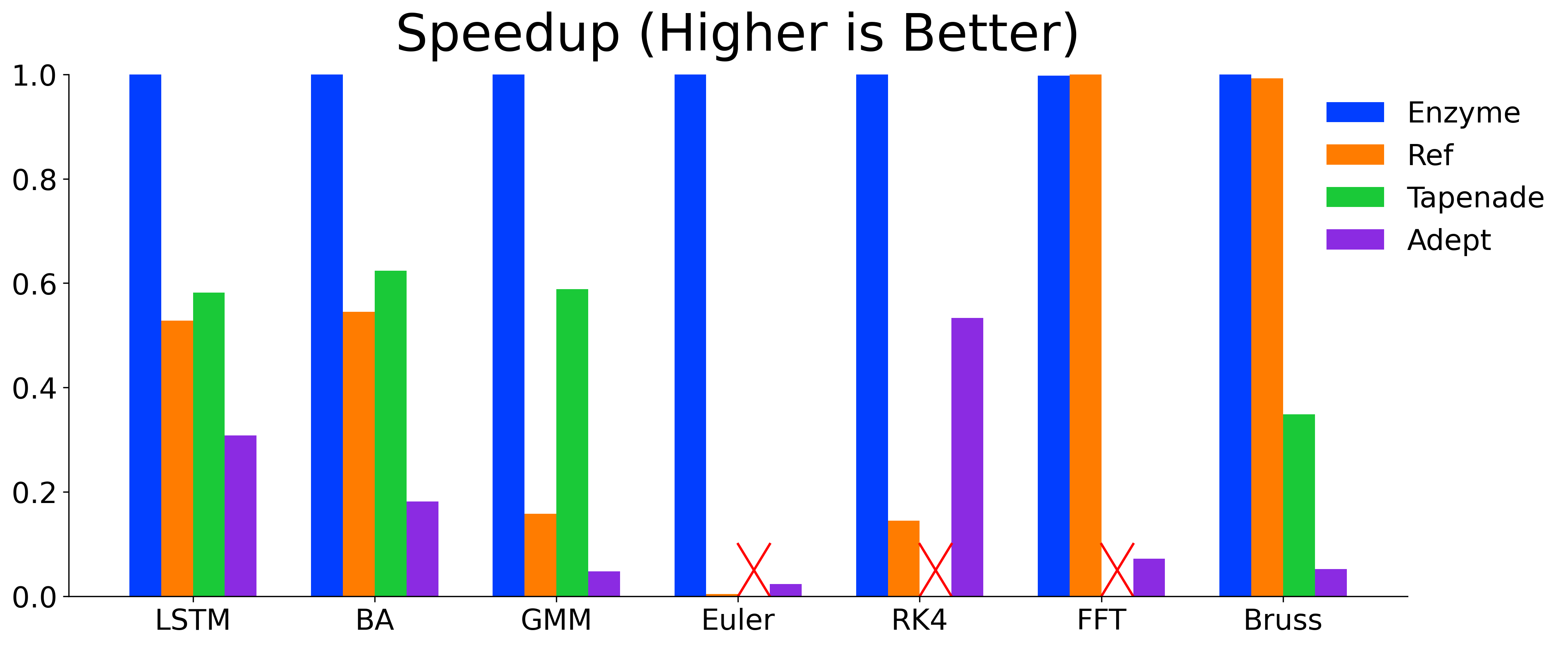Enzyme is a plugin that performs automatic differentiation (AD) of statically analyzable LLVM.
Enzyme can be used by calling __enzyme_autodiff on a function to be differentiated as shown below.
Running the Enzyme transformation pass then replaces the call to __enzyme_autodiff with the gradient of its first argument.
double foo(double);
double grad_foo(double x) {
return __enzyme_autodiff(foo, x);
}Enzyme is highly-efficient and its ability to perform AD on optimized code allows Enzyme to meet or exceed the performance of state-of-the-art AD tools.
Detailed information on installing and using Enzyme can be found on our website: https://enzyme.mit.edu.
A short example of how to install Enzyme is below:
cd /path/to/Enzyme/enzyme
mkdir build && cd build
cmake -G Ninja .. -DLLVM_DIR=/path/to/llvm/lib/cmake/llvm -DLLVM_EXTERNAL_LIT=/path/to/lit/lit.py
ninja
Or, install Enzyme using a package manager:
brew install enzyme
spack install enzyme
To enable creating dynamic data dependence graph add -enable-dddg to opt.
To get involved or if you have questions, please join our mailing list.
If using this code in an academic setting, please cite the following:
@inproceedings{NEURIPS2020_9332c513,
author = {Moses, William and Churavy, Valentin},
booktitle = {Advances in Neural Information Processing Systems},
editor = {H. Larochelle and M. Ranzato and R. Hadsell and M. F. Balcan and H. Lin},
pages = {12472--12485},
publisher = {Curran Associates, Inc.},
title = {Instead of Rewriting Foreign Code for Machine Learning, Automatically Synthesize Fast Gradients},
url = {https://proceedings.neurips.cc/paper/2020/file/9332c513ef44b682e9347822c2e457ac-Paper.pdf},
volume = {33},
year = {2020}
}
Julia bindings for Enzyme are available here
To generate synthetic function you can use synthetic_function.py. The INPUT_COUNT field specifies the number of inputs. The OUTPUT_ARRAY specifies how many inputs each output depends on. For instance:
OUTPUT_ARRAY = [1, 2, 1, 3, 4]
Means we have 5 outputs and output_0 depeneds on 1 input, and output_4 depends on 4 inputs.
